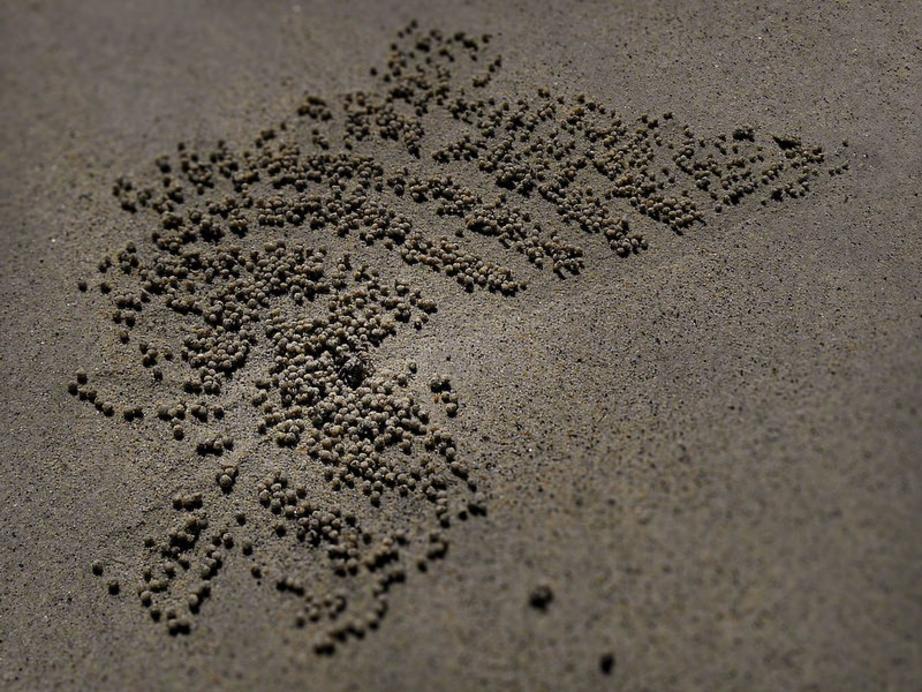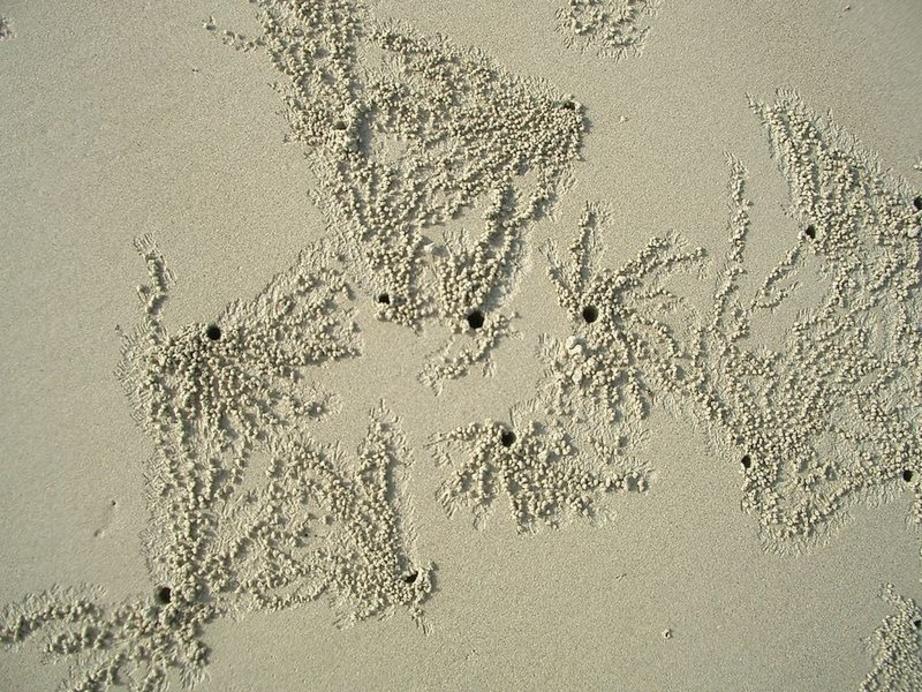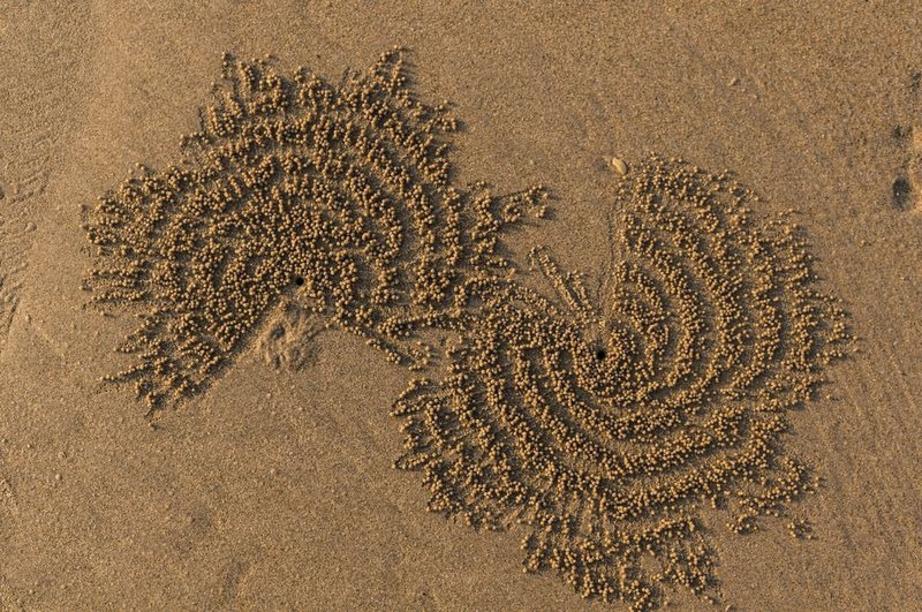Nature's sand artist: sand bubbler crab
In sandy beaches of certain tropical regions in the Indo-Pacific live a tiny crab, about a centimeter across, called the “sand bubbler crab” of the genera Scopimera and Dotilla in the family Dotillidae. These tiny crustaceans have spherical bodies with long and flat pinchers, hairy legs, and eyes on short stalks which can fold away into grooves when the crabs scurries into its burrow. With a body color same as sand, the crabs are easy to miss. What’s unmissable however are the intricate patterns they make on the beach when they search for food. Like tiny galaxies, these patterns are composed of hundreds of tiny sand balls —sometimes thousands, depending on how many fellows were snacking.
The sand bubbler crab eats the thin coating of edible organic particles on sand grains. When the tide goes out, the crab emerge from their burrows and start sifting through the sand, picking up the sand grains with their downward pointing pincers and bringing it to their mouth to scrap the microscopic food. After they have scrapped the sand grains clean, they roll them into little balls and toss them behind. By doing this they avoid sifting the same sand twice. The crabs work radially from the entrance to their burrow, scrapping out a tiny paths with little balls of sifted sand piled up on either side.
The crabs come out of their burrows as soon as the tide recedes. You can almost tell how long the tide has been out by the patterns of their sand balls. The more intricate the pattern of sand balls, the longer the tide has been out.
The sand bubbler crab is widespread across the Indo-Pacific region, where they occur abundantly on sandy beaches in the tropics and sub-tropics.
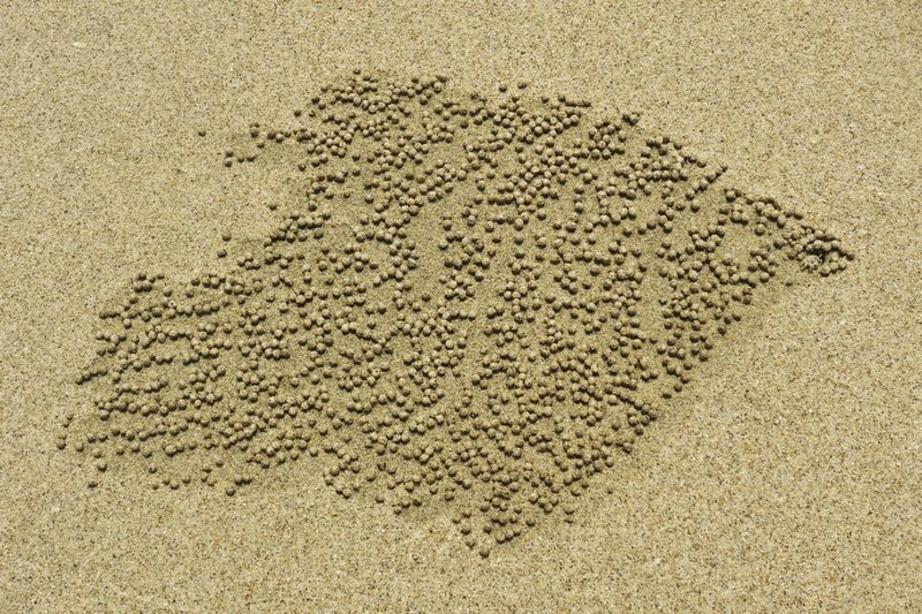
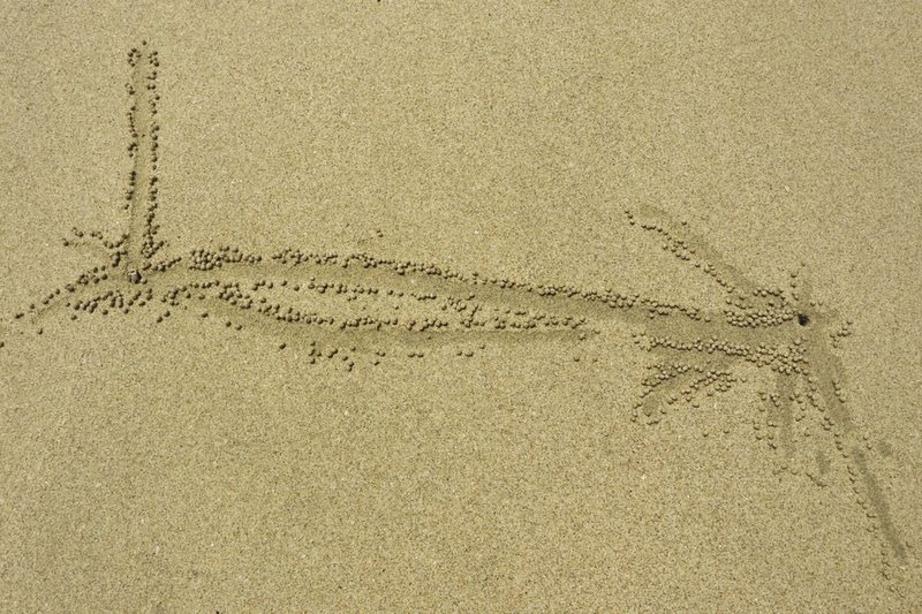
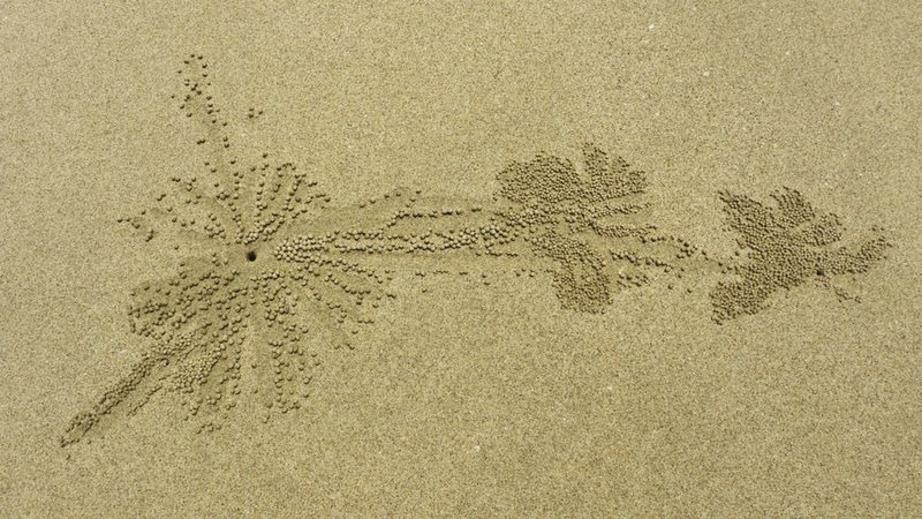
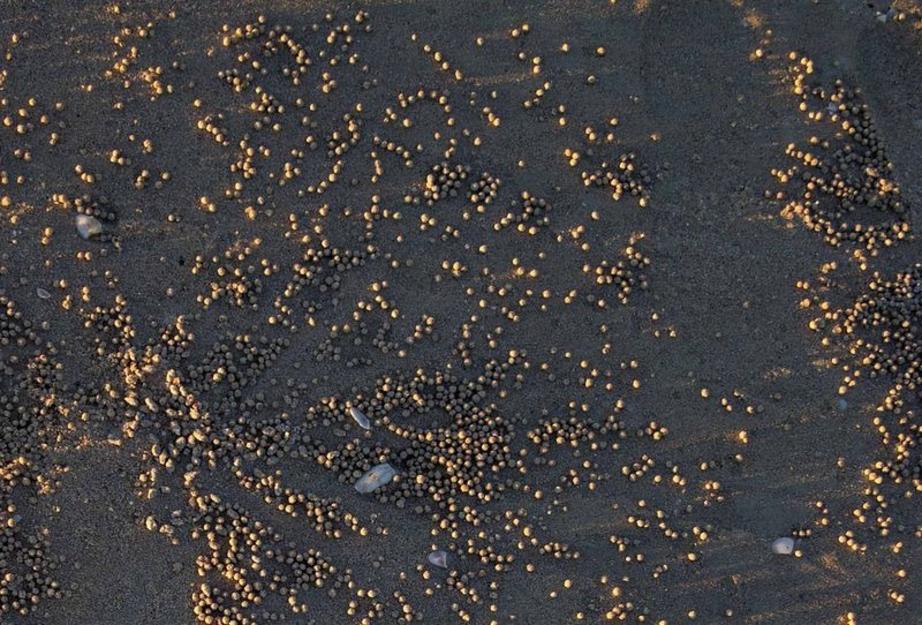
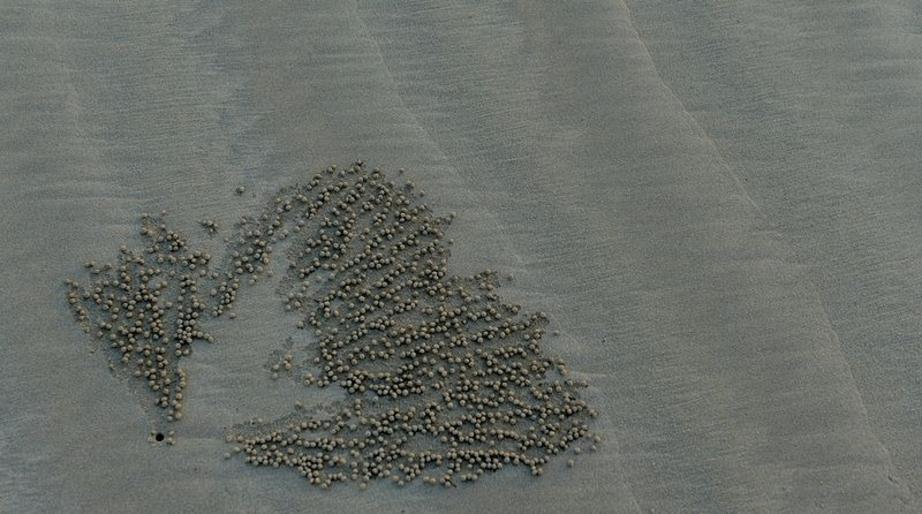
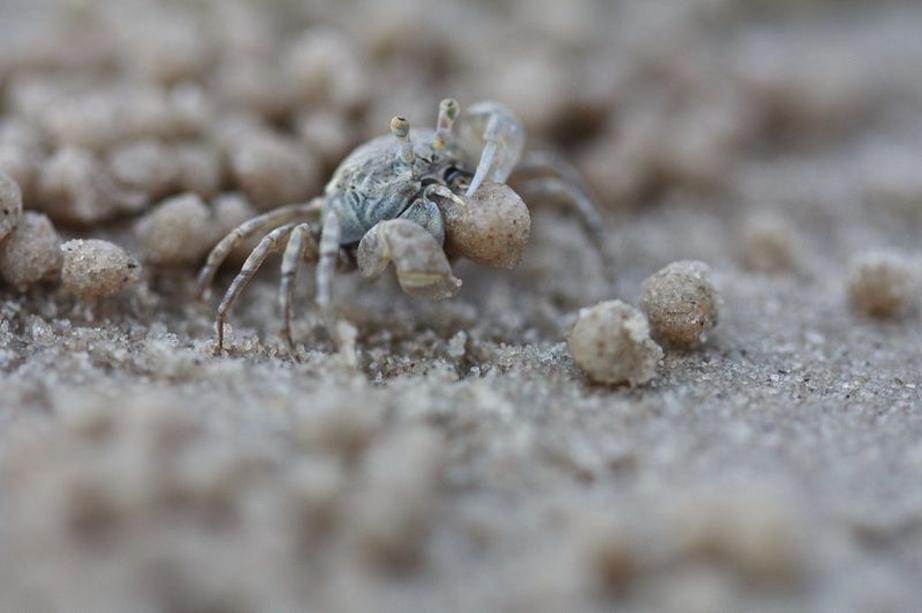
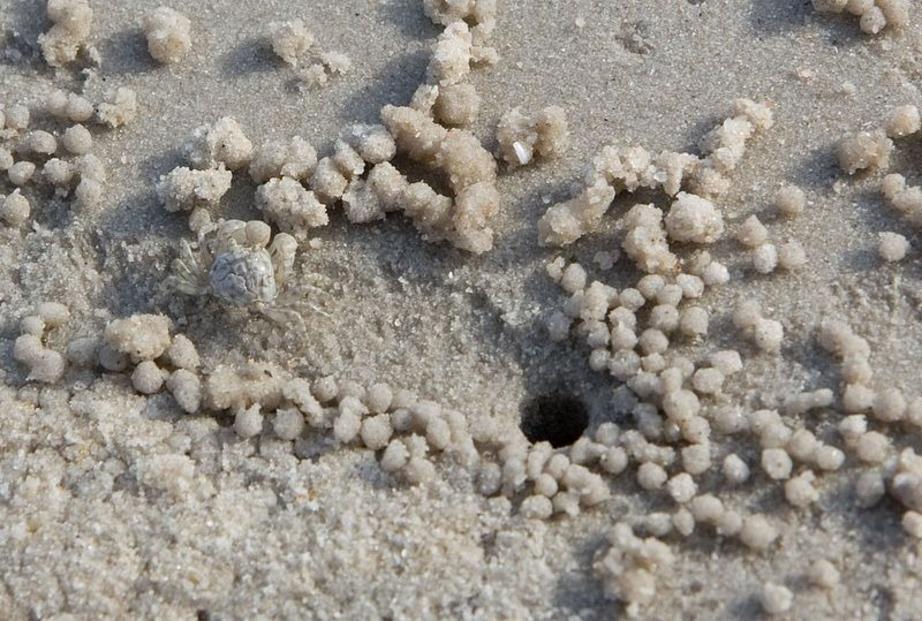
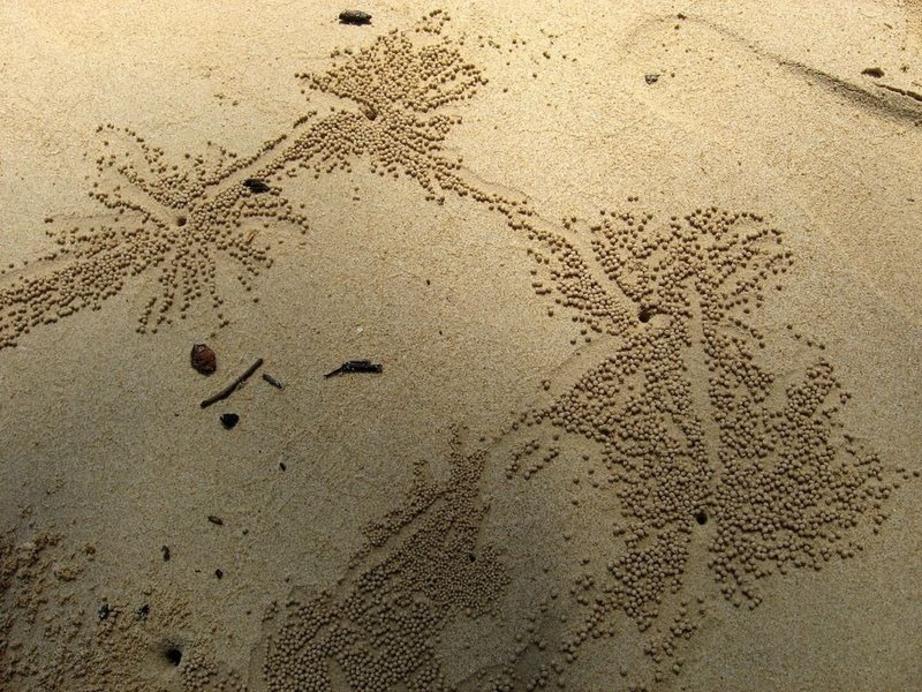
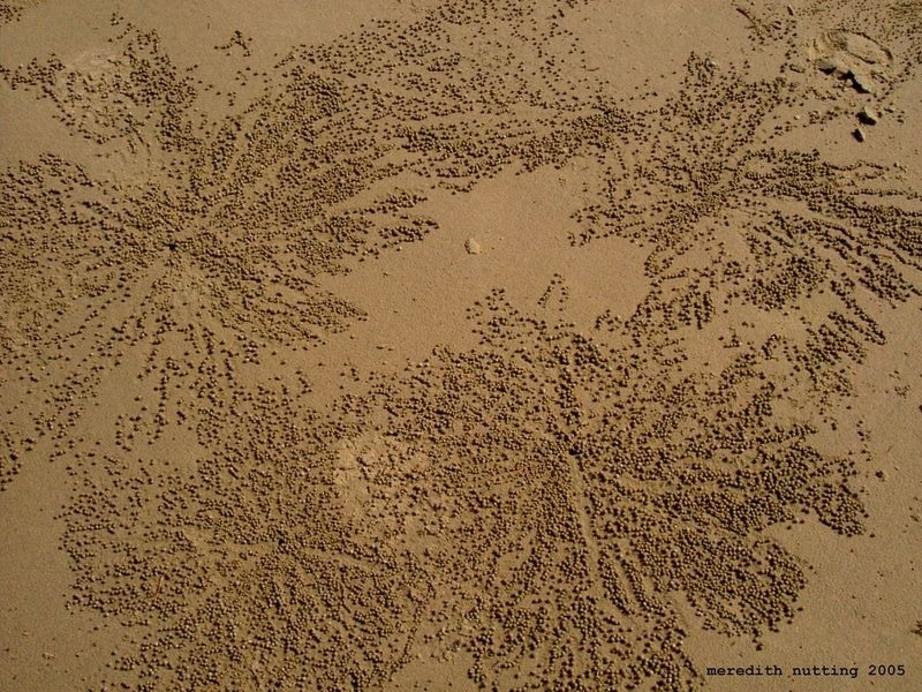
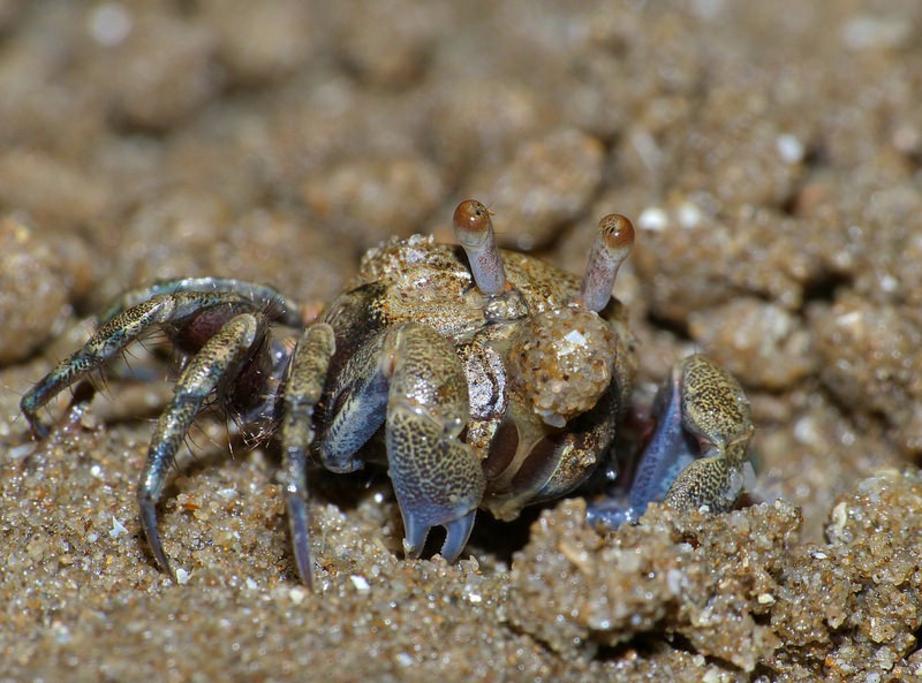
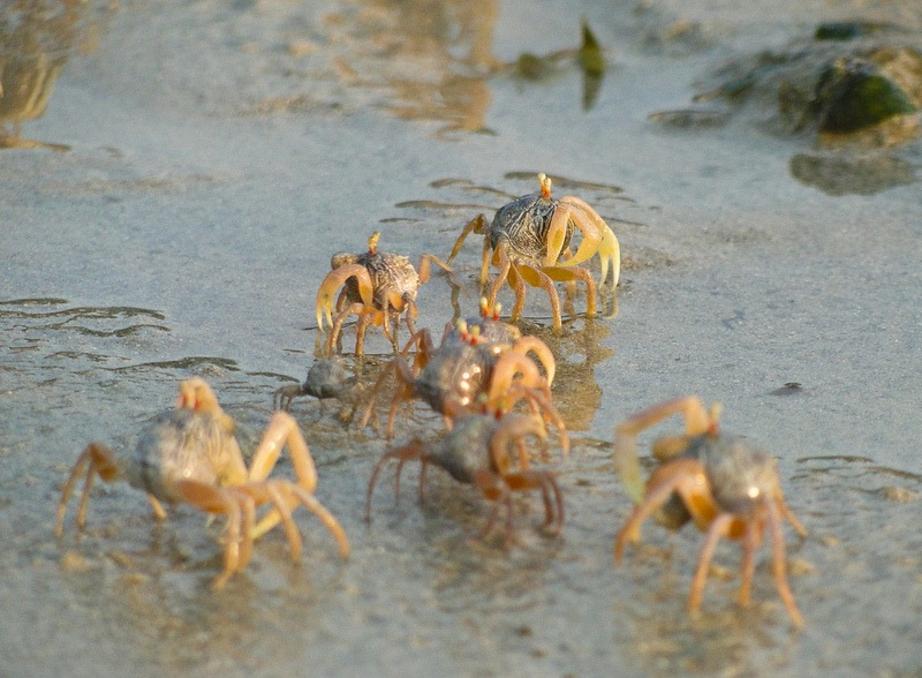
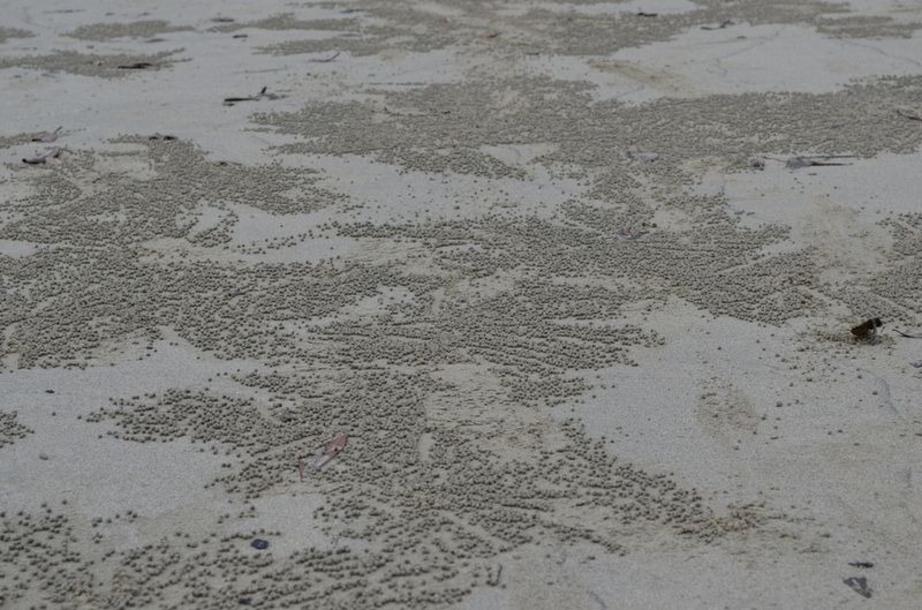
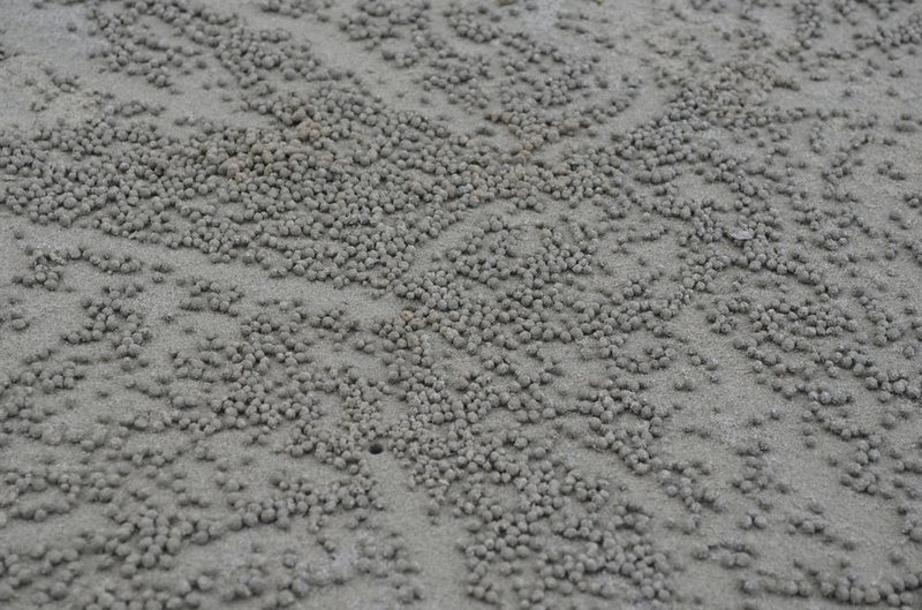
.jpg?s=sm)
